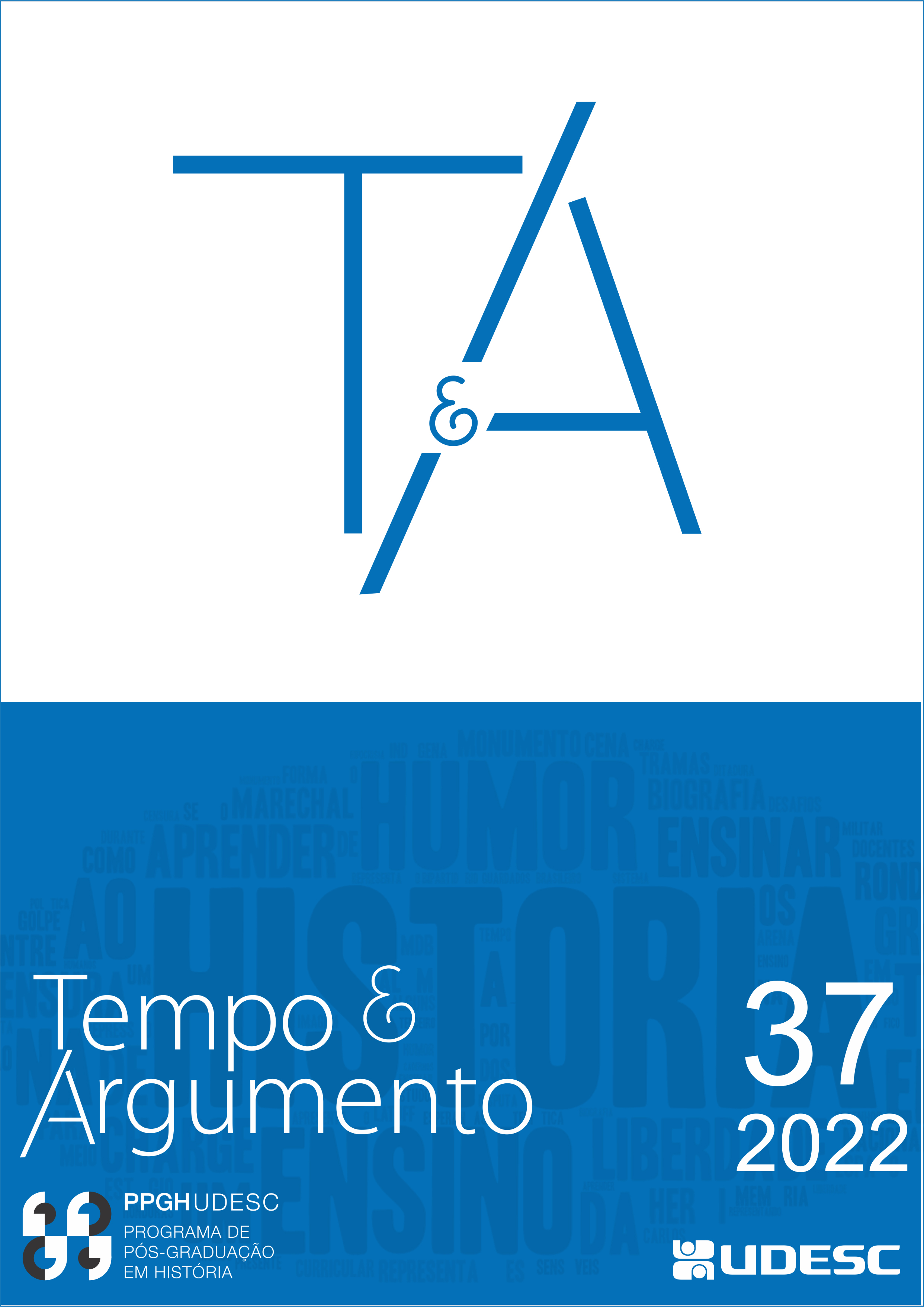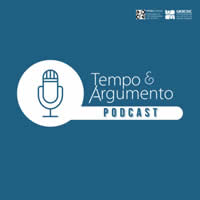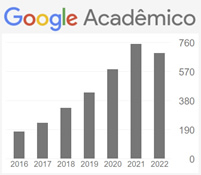As estratégias de assistência do Banco Mundial para o Brasil em perspectiva política (1990-2020)
DOI:
https://doi.org/10.5965/2175180314372022e0301Palavras-chave:
austeridade fiscal, liberalização econômica, ajuste estrutural, reforma do Estado, Banco MundialResumo
Este artigo analisa as estratégias de assistência do Banco Mundial para o Brasil no período de 1990 a 2020, a fim de evidenciar qual foi a importância estratégica atribuída à austeridade fiscal e às reformas neoliberais, avaliar como o “combate à pobreza” foi acionado como retórica e mecanismo de legitimação da agenda neoliberal, problematizar as relações do Banco Mundial com o setor privado e as organizações da sociedade civil que são "parceiras" da instituição e, finalmente, discutir a importância decisiva das atividades de aconselhamento e consultoria do banco no país. As estratégias de assistência constituem a documentação mais importante na relação do Banco Mundial com o Brasil. A análise se detém nos anos de 1990 a 2002 (governos Collor, Itamar e FHC), de 2003 a 2016 (governos Lula e Dilma) e de 2016 a 2020 (governos Temer e Bolsonaro). O trabalho mostra que o modus operandi do Banco Mundial combina financiamento com aconselhamento, assistência técnica e pesquisa econômica a fim de disseminar orientações e práticas sobre o que os governos devem fazer e como, em matéria de políticas públicas. Argumenta-se que as relações do país com o Banco Mundial foram mais programáticas ou mais pragmáticas, dependendo do governo, mas sempre envolveram escolhas dos agentes nacionais sobre que rumos seguir e como fazê-lo em matéria de desenvolvimento. Evidencia-se que, durante trinta anos, o ajuste fiscal assumiu uma primazia normativa na agenda do banco, no sentido de anteceder e enquadrar toda e qualquer discussão sobre os rumos e os meios do desenvolvimento.
Downloads
Referências
BABB, Sarah. Behind the development banks: Washington politics, world poverty, and the wealthy of nations. Chicago: The University of Chicago Press, 2009.
BANCO MUNDIAL. World development report: poverty. Washington, DC: [World Bank], 1990.
BANCO MUNDIAL. World development report: the challenge of development. Washington, DC: [World Bank], 1991.
BANCO MUNDIAL. Country assistance strategy for the Federative Republic of Brazil: report n. 14569-BR. Washington, DC: [World Bank], Jun. 6, 1995.
BANCO MUNDIAL. Relatório sobre o Desenvolvimento Mundial: o Estado num mundo em transformação. Washington, DC: [World Bank], 1997a.
BANCO MUNDIAL. Country assistance strategy of the world bank group for the Federative Republic of Brazil: report n. 16582-BR. Washington, DC: [World Bank], Jun. 12, 1997b.
BANCO MUNDIAL. Country assistance strategy of the world bank group for the Federative Republic of Brazil: report n. 20160-BR. Washington, DC: [World Bank], Mar. 6, 2000.
BANCO MUNDIAL. Estratégia de assistência ao país: Brasil – 2004 a 2007. Washington, DC, [Banco Mundial], 2003.
BANCO MUNDIAL. Brazil: country assistance evaluation. Washington, DC: [Banco Mundial], Report n. 27629-BA, 14 jan. 2004.
BANCO MUNDIAL. Estratégia de parceria com o país: Brasil (2008 a 2011). Washington, DC: [Banco Mundial], Relatório n. 42677-BR, 2008.
BANCO MUNDIAL. Estratégia de parceria com o país: Brasil (2012 a 2015). Washington, DC: [Banco Mundial], Relatório n. 63731-BR, 2011.
BANCO MUNDIAL. Country Partnership Framework for the Federative Republic of Brazil for the Period FY18-FY23. Washington, DC, Report n. 113259-BR, 2017a.
BANCO MUNDIAL. Um ajuste justo: análise da eficiência e equidade do gasto público no Brasil. Brasília [Banco Mundial], 2017b.
BANCO MUNDIAL. Annual report. Washington, DC: [World Bank], 2020a. v. 2.
BANCO MUNDIAL. Covid-19 no Brasil: impactos e respostas de políticas públicas. Brasília: [Banco Mundial], 2020b.
CARROLL, Tom. Delusions of development: the World Bank and the post-Washington consensus in Southeast Asia. London: Palgrave, 2010.
CHANCEL, Lucas et al. World inequality report 2022. Paris: World Inequality Lab, 2022. Disponível em: https://wid.world/document/world-inequality-report-2022/. Acesso em: 20 abr. 2021.
DEZALAY, Yves; GARTH, Bryant. The internationalization of palace wars: lawyers, economists, and the contest to transform Latin American states. Chicago: The Chicago University Press, 2002.
ENGEL, Susan. The World Bank and the post-Washington consensus in Vietnam and Indonesia. London: Routledge, 2010.
FINE, Ben. Social capital versus social history. Social History, London, v. 33, n. 4, p. 442-467, 2008.
FINE, Ben. The developmental state is dead: long live social capital? In: MOORE, David (ed.). The World Bank: development, poverty, hegemony. Scottsville: University of KwaZulu-Natal Press, 2007. p. 121-143.
FINE, Ben. The World Bank’s speculation on social capital. In: PINCUS, Jonathan; WINTERS, Jeffrey (eds.). Reinventing the World Bank. Ithaca: Cornell University Press, 2002. p. 203-221.
IBGE. As fundações privadas e associações sem fins lucrativos no Brasil – 2002. Rio de Janeiro: [IBGE], 2004.
GONZALEZ, Manuel et al. O Brasil e o Banco Mundial: um diagnóstico das relações econômicas (1949-1989). Brasília: IPEA, 1990.
GROOTAERT, Christiaan; VAN BASTELAER, Thierry (eds.). Understanding and measuring social capital: a multidisciplinary tool for practitioners. Washington, DC: The World Bank, 2002.
HARRISON, Graham. The World Bank and Africa. London: Routledge, 2004.
HARRISS, John. Social capital. In: SUNDARAM, Jomo Kwame; FINE, Ben (eds.). The new development economics after the Washington consensus. London: Zed Books, 2006. p. 184-199.
HARRISS, John. Depoliticizing development: the World Bank and social capital. London: Anthem Press, 2002.
KAMAT, Sangeeta. The privatization of public interest: theorizing NGO discourse in a neoliberal era. Review of International Political Economy, [London], v. 11, n.1, p. 155-176, 2004.
KAPUR, Devesh; LEWIS, John; WEBB, Richard (eds.). The World Bank: Its first half century: history. Washington, DC: Brookings Institution Press, 1997.
MASON, Edward; ASHER, Richard. The World Bank since Bretton Woods. Washington, DC: The Brookings Institution, 1973.
MEDEIROS, Marcelo; CASTRO, Fábio. A composição da renda no topo da distribuição: evolução no Brasil entre 2006 e 2012, a partir de informações do Imposto de Renda. Economia e Sociedade, Campinas, v. 27, n. 2, p. 577-605, 2018.
NELSON, Paul. The World Bank and nongovernmental organizations: the limits of apolitical development. New York: Palgrave MacMillan, 1995.
OSBORNE, David; GAEBLER, Ted. Reinventing government: how the entrepreneurial spirit is transforming the public sector. New York: Plume, 1992.
OSBORNE, David; PLASTRIK, Peter. La reducción de la burocracia: cinco estrategias para reinventar el gobierno. Barcelona: Paidós, 1998.
PEREIRA, João Márcio Mendes. O Banco Mundial no Brasil (1990-2020). Curitiba: Appris, 2022.
PEREIRA, João Márcio Mendes. Continuidade, ruptura ou reciclagem? uma análise do programa político do Banco Mundial após o Consenso de Washington. Dados, Rio de Janeiro, v. 58, p. 461-498, 2015.
PEREIRA, João Márcio Mendes. O Banco Mundial como ator político, intelectual e financeiro (1944-2008). Rio de Janeiro: Civilização Brasileira, 2010.
SOUZA, Pedro H. G. F. Os ricos no Brasil: o que sabemos, o que não sabemos e o que deveríamos saber. Revista Brasileira de Informação Bibliográfica em Ciências Sociais - BIB, São Paulo, v. 85, p. 5-26, 2018.
U.S. TREASURY. Articles of Agreement: United Nations monetary and financial conference - Bretton Woods, NH, July 1 to 22, 1944. Washington, DC: [U.S. Treasury], 1944.
WILLIAMS, David. The World Bank and social transformation in international politics. London: Routledge, 2008.
WOODS, Ngaire. The globalizers: the IMF, the World Bank and their borrowers. Ithaca: Cornell University Press, 2006.
Downloads
Publicado
Como Citar
Edição
Seção
Licença
Copyright (c) 2022 Revista Tempo e Argumento

Este trabalho está licenciado sob uma licença Creative Commons Attribution-NonCommercial 4.0 International License.
Os artigos cujos autores são identificados representam a expressão do ponto de vista de seus autores e não a posição oficial da Tempo e Argumento.





